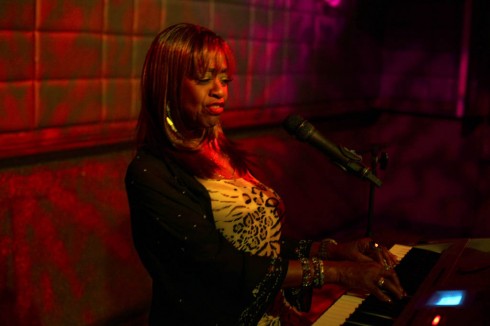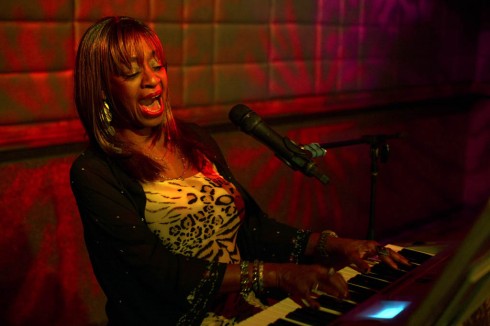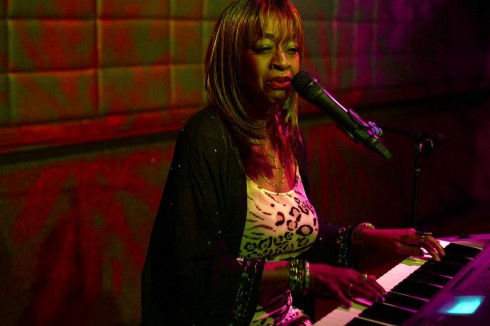THE DISTINGUISHED LITERARY ODYSSEY OF JOSH GREENFELD
|
EAST AND WEST PUBLISHING CONVERGE ON THE SUNSET STRIP
By Bob Vickrey
After years of publishing books of a rather staid and provincial nature like the good New Englanders they were, the folks at Houghton Mifflin decided thirty years ago to add some spice to their yearly catalog when they enlisted a successful Los Angeles publisher of mind, body, and spiritualism titles to their annual mix.
Jeremy P. Tarcher and his idiosyncratic West Coast taste for alternative lifestyle books seemed at once to be quite an odd fit for a venerable old Boston publishing house, which had published the likes of Emerson, Longfellow, and Churchill. Read more
HANGING WITH BRUBECK ON THE QUEEN MARY
|
I struck up a friendship with a book publicist in Los Angeles shortly after our two publishing companies joined forces in the 1980s. Lucinda worked for J.P. Tarcher Company, the most successful publishing enterprise on the West Coast. She had met many great musicians during her earlier years as a young publicist for the Dallas Symphony Orchestra and formed a long friendship with jazz legend Dave Brubeck. When he appeared at the Long Beach Jazz Festival in 1987, he invited her to join him and his wife, Iola, for dinner before his performance that evening. Read more |
A Great & Special Concert
By LIONEL ROLFE
& PHOTOS BY SUSAN MCRAE


 Sonji Kimmons came–one of the greatest of the unheralded blues pianists and singers around town–looked out over her audience at MJs, the bar in Silver Lake next door to the Trader Joe’s last Saturday, and played her heart out. Read more
Sonji Kimmons came–one of the greatest of the unheralded blues pianists and singers around town–looked out over her audience at MJs, the bar in Silver Lake next door to the Trader Joe’s last Saturday, and played her heart out. Read more
The Controversy over America’s Oil Future
Leslie Evans
For the last decade there has been growing concern among petroleum geologists, energy specialists, the Defense Department, investors, and environmentalists over the radically rising price of oil. A 44 gallon barrel of oil that sold for $12 in 1998 is going today for $95, and that understates things, as that is the American, or West Texas Intermediate, standard. This is what many in the Midwest pay, but on both coasts and much of the South, oil is going at the European Brent price, which is now at $111 per barrel.
Unlike climate science, where the professionals have reached overwhelming consensus that global warming is caused by human use of fossil fuels, the constituencies concerned with America’s energy prospects remain divided. Those who think this finite, precisely “fossil,” material is running short of world demand are proponents of the peak oil thesis. They advocate strict conservation of fossil fuels and crash investment in energy efficient technologies and renewable energy sources. Their opponents call them doomsters, while the peak oilers refer to the deniers as cornicopians. The cornicopians maintain that there are large enough untapped resources still in the ground to delay indefinitely any need to change our high energy standard of living or our economy, which depends on perpetual growth. They got a huge boost last fall when the prestigious Paris-based International Energy Agency, the 28-nation consortium that reports to the Organization of Economic Cooperation and Development, on November 12 released its World Energy Outlook for 2012, predicting: Read more
California Road Scholar: Pastoral Era Writing
By Phyl van Ammers
If people today think at all about the pastoral era in California, which is just about never, they think of a movie character: Carlotta Valdes in Hitchcock’s “Vertigo.” Valdés is a surname of Asturian (Northern Spain) origin. Both in North and South America the spelling Valdez is very common. Juan Valdés is a fictional character that sells Columbian coffee on television. There is a city of Valdez in Yolo County. No Californio woman named Carlotta Valdes lived in San Benito County near the San Juan Bautista mission during the pastoral era.
Anyone who has seen the film thinks of Carlotta’s portrait. An unknown artist, possibly a movie studio artist, painted a fair- haired woman posed next to a marble column. The ambiguous background is comprised of ominous teal sky over what could be dry hills and dark olive trees and a reflective poo.. She wears a low cut violet satin dress and an elaborate ruby and gold pendant hangs from a thin gold chain. She carries a bouquet. Her expression is wary. Hitchcock placed the portrait in San Francisco’s Palace of the Legion of Honor.
The California pastoral era lasted from 1769 to 1854. (Hubert Howe Bancroft, Volume XXIV, published in 1888 by The History Company. Victorians wrote Bancroft’s history. (This chapter is available free on-line at http://archive.org/stream/californiapastor00inbanc#page/n9/mode/2up.)
Veteran Journalist Spills His Guts About California Journalism In New Book
Phyl Van Ammers recently talked to Lionel Rolfe, the Los Feliz-based author whose most recent book is, “The Misadventures of Ari Mendelsohn: A Mostly True Memoir of California Journalism.” It is available on Amazon, both in paper and on Kindle. He will be doing a signing at Skylight Bookstore in March.
Q: The Misadventures of Ari — does the title suggest a relationship to Saul Bellow’s Adventures of Augie March?
A: Oh God no. I never could read Saul Bellow. He was everything I don’t like. Academic, heavy handed, establishment in the worst kind of way. He might have even been a good writer, but I just couldn’t read him. What I could read just got on my nerves–badly. Also, I take my California identity seriously. I’ve made a career out pointing out that most of this country’s best writing came from California, from Mark Twain to Jack London to Steinbeck. Not from the James brothers from Boston, or wherever. That’s what my book “Literary L.A.” was all about. The real soul of California’s contribution to world literature was born in its Bohemian roots, and then it metamorphosed into something more apocalyptical after World War II. I don’t see Bellow as summing up anything big and stirring–just pompous and stale academia and equally pompous and stale New York publishing. Bellow is in the tradition of James’ parlor room writing. I’d point out that the best American writer in recent years certainly wasn’t Bellow, it was Bukowski. And no New York publisher ever touched him. I got to admit I do like Philip Roth on occasions. He had a certain bawdy appeal. Bellow sucks. If my book draws from anything–the picaresque novel sort of thing–think Henry Fielding and Mark Twain. I loved Henry Fielding. Read more
CHARLES BUKOWSKI: The Poet as Entertainer; An Excerpt From Joan Jobe Smith’s New Book,“Charles Bukowski: Epic GLOTTIS: His Art & His Women (& me)”
By Joan Jobe Smith
Unbelievable to think that here I am, in 2012, half of my lifetime
plus two years later, rewriting this piece I first drafted in August 1975,
when I was a law student. Seventeen long years later, after I dropped
out of law school, received a Master of Fine Arts in fiction writing
from the University of California Irvine and married the poet Fred
Voss, a portion appeared in Sure—The Charles Bukowski Newsletter #4,
1992. In the spring 1994 issue of Chiron Review, “The Poet As Entertainer”
was published in toto as a column I wrote called “Swimming in
the Word Stew.” Read more
Honey goes to Lakeport
By Honey van Blossom
(Honey is a Belgian Marxist former strip-tease artiste.)
Let us begin this story with Astarte, who is a dog living in San Felipe, Mexico on the coast of the Sea of Cortez. To get to the story, however, I have to tell you the backstory.
The congregation of the Rainbow Church of Living Light had prayed together the night before I responded to their ad for a lawyer. One of them said to me later that, when you need something, you open yourself to the universe. You receive what you need.
What I need is an income. I am open to the universe.
Two members of the church cut down and helped me haul away most of an old expansive yucca on the northeast corner of my property line. The yucca is a species of evergreen with tough, sword-shaped leaves known colloquially in the Midwest United States as ghosts in the graveyard. Its sharp leaves also drive off money. Read more
More Poems By Michael Cornier
FOUR QUESTIONS
Victory, defeat,
Sans hands, sans feet,
Win, lose,
The truth buried in the news,
Overcast or sunny weather,
Who forged these chains to which we’re tethered?
Euphemisms, rhetoric,
The saint reviled as heretic,
Ambition, coalitions,
Beware the man with a mission,
Find the child bloodied beneath the rubble,
What does it take to prick your bubble? Read more












